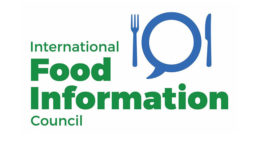Home » Keywords: » processed foods
Items Tagged with 'processed foods'
ARTICLES
Ultra-processed food diets result in higher amounts of fat stored within thigh muscles, which could increase risk of knee osteoarthritis
Read More
Consumer Confidence in Food Safety Declines
International Food Information Council releases latest consumer insights on food ingredient safety
September 25, 2024
Rising Consumer Stress, Lagging Consumer Confidence in US Food Supply
The International Food Information Council releases Annual Food & Health Survey
June 24, 2024
Consumers Confront Concerns Surrounding Processed Foods
Latest consumer research reveals confusion surrounding definitions and healthfulness
January 30, 2024
Institute of Food Technologists to Host Debate on Processed Foods
At IFT FIRST, experts will address the question: Should we eat more processed foods?
May 17, 2022
Healthy, Convenient Meal Solutions
Meal solutions that allow consumers to experience high-quality, healthful foods with little preparation appeal greatly to a generation on the go
October 13, 2015
U.S. Enzyme Demand to Reach $2.2 Billion in 2019
An increasing focus on sustainability by many companies will continue to support enzyme demand
June 24, 2015
Shoppers Spend Less Time in Grocery, More in C-Stores
Shifts are in line with broader national trends surrounding channel blurring and its impact on trip missions
June 22, 2015
Target Seeks Local Organic, Natural Food Brands
Retailer informs companies such as Campbell Soup, General Mills, and Kellogg that it intends to deemphasize less healthy, processed brands
May 28, 2015
Pinpointing Connections: Weekly Exercise, Household Income, and Healthier Food Choices
In wake of proposed dietary guidelines, Packaged Facts research underscores general shift away from processed foods and towards more “real” food
February 25, 2015









